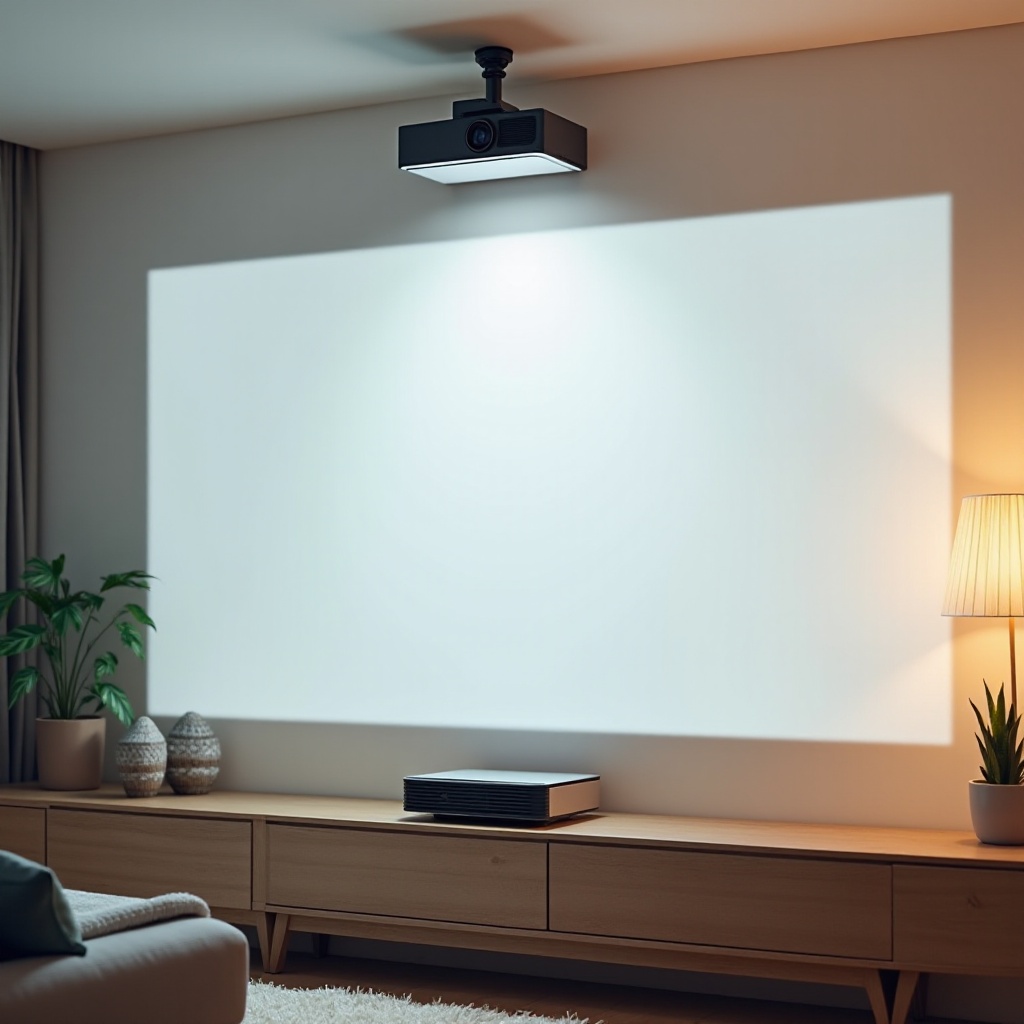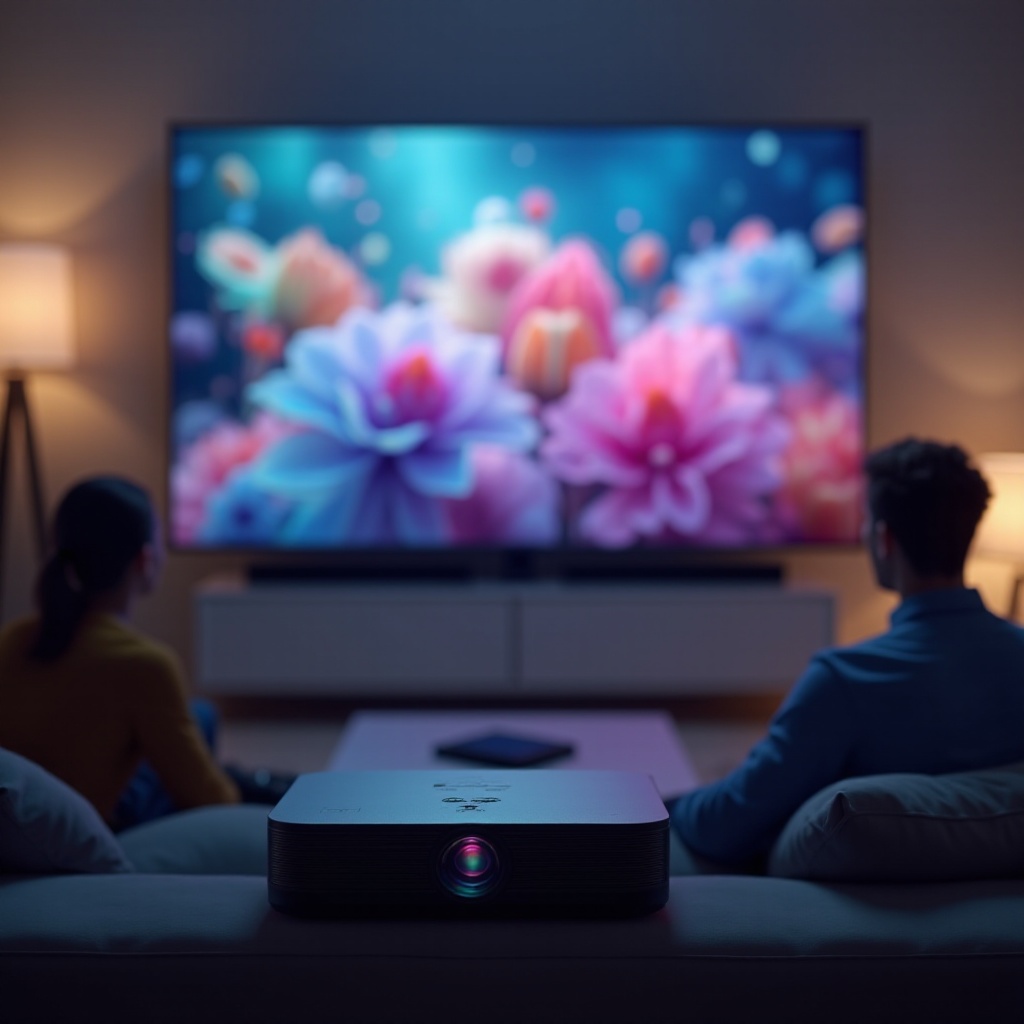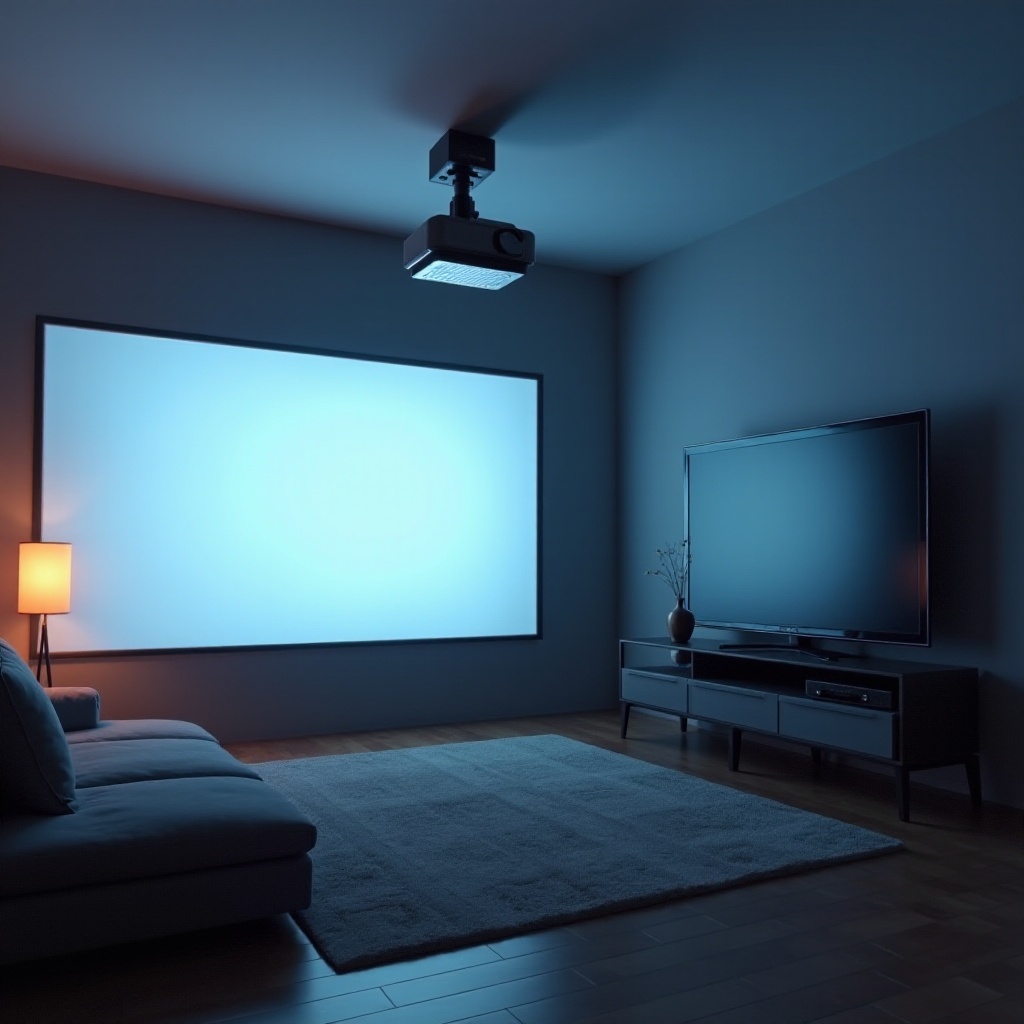Introduction
Choosing between a projector and a TV can significantly impact your home viewing experience. Both options boast unique advantages, but which one is truly better? This comprehensive guide will explore picture quality, usability, cost efficiency, and overall viewing experiences. By the end of this article, you will have a clearer understanding of the best device for your needs.

Understanding the Basics
Before diving into comparisons, it’s essential to understand the fundamental differences between projectors and TVs.
– Projectors: These devices project images onto a screen or wall. They are often used to create larger displays and can be easily adjusted in size by moving the projector closer or further from the screen.
– TVs: TVs come with built-in screens capable of displaying high-definition video. They are typically easier to set up, providing a high-quality viewing experience with minimal adjustments.
Both devices serve the primary function of displaying content, but their different methods—projection versus direct display—provide distinct viewing experiences.

Picture Quality Comparison
Picture quality is a pivotal factor when deciding between a projector and a TV. Here are the primary aspects to consider:
– Resolution: Modern TVs often offer 4K resolution, providing detailed and crisp images. While high-resolution projectors exist, they typically come at a higher cost.
– Brightness and Contrast: TVs have the upper hand in bright environments with their inherently vivid displays. Projectors may struggle in brightly lit rooms unless coupled with high-lumen outputs and specialized screens.
– Color Accuracy: Higher-end TVs often provide better color accuracy and consistency, which can be critical for avid movie watchers and gamers. Projectors can achieve excellent color quality, but usually require calibration and optimal settings.
Though projectors can offer impressive picture quality, TVs generally provide superior resolution, brightness, and color accuracy right out of the box.
Usability Factors
Let’s look at how user-friendly projectors and TVs are, which can heavily influence your decision:
- Setup and Installation: TVs are straightforward to set up—simply place or mount the TV, plug it in, and you’re ready. Projectors need more effort, including positioning, securing a screen, and ensuring an appropriate throw distance.
- Portability: Projectors tend to be more portable and can be easily moved or adjusted. Most TVs, especially larger models, are cumbersome and difficult to move.
- Space Requirements: Projectors require a significant amount of space between the projector and screen, making them less suitable for small rooms. TVs, available in various sizes, can fit comfortably in a wide range of environments.
While TVs offer incredible ease of setup and use, projectors can be more versatile and portable depending on your specific needs.
Cost Efficiency and Value
Evaluating cost-efficiency and overall value is crucial when considering a major purchase. Here’s a breakdown:
– Initial Cost: TVs typically range from affordable models to high-end units, offering various features and sizes. Quality projectors can be more costly, especially those that support 4K resolution and high brightness levels.
– Maintenance and Accessories: TVs generally require little maintenance or additional accessories. Projectors may need bulb replacements over time, screens, mounts, and possibly external speakers for the best audio experience, leading to additional costs.
– Energy Consumption: TVs tend to consume more power during use due to their bright screens and advanced features. Projectors, especially LED or laser ones, can be more energy-efficient despite their powerful outputs.
While the upfront cost of TVs often represents better initial value, projectors can offer cost-efficiency in certain scenarios with appropriate adjustments and usage.

Overall Viewing Experience
Your ideal viewing experience will depend on your preferences and environment:
- Immersiveness: Projectors can create a cinematic feel with larger screen sizes and adjustable projections. This can be ideal for home theaters or extensive viewing spaces.
- Day-to-Day Use: TVs are often more convenient for everyday use, especially for casual watching, due to their straightforward setup and consistent picture quality.
- Sound Quality: TVs come with built-in speakers that usually provide adequate sound quality for most users. Projectors often need external speakers for the best audio experience.
Balancing the immersive experience of projectors with the everyday practicality of TVs can help you determine which option best fits your lifestyle.
Best Use Cases for Each
Understanding the best environments for each device can aid in making a better decision:
- Projectors:
- Home theaters
- Outdoor movie nights
- Large presentations or gatherings
- TVs:
- Daily viewing in living rooms or bedrooms
- Gaming setups
- Smaller apartments or compact spaces
Each device has its prime contexts and environments where it excels, making the selection nuanced based on your requirements.
Conclusion
In the debate between projectors and TVs, the best choice depends on various factors, including picture quality preferences, usability needs, cost considerations, and overall viewing experience. TVs offer convenience and exceptional picture quality for routine use, while projectors provide a versatile and immersive experience suitable for specific scenarios. Analyze your priorities and environment to choose the optimal device for your needs.
Frequently Asked Questions
Can projectors work well in brightly lit rooms?
Yes, but they require high-lumen projectors and specialized screens for the best performance.
Do projectors have a lifespan compared to TVs?
Projectors have bulb lifespans that vary but can last up to 20,000 hours. TV lifespans depend on usage but can offer reliable service for many years.
Is a projector worth it for gaming?
For immersive and large-scale gaming experiences, projectors can be excellent. However, TVs usually provide better input response times crucial for competitive gaming.